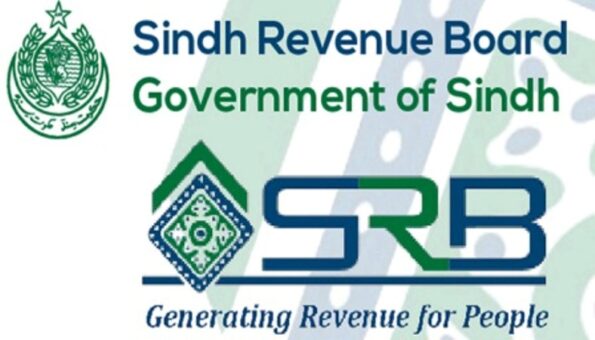KARACHI: Sindh Revenue Board (SRB) on Monday revised jurisdiction of commissioners with effect from July 06, 2020.
Following is the revised jurisdiction of commissioners:
Commissioner-I
Unit 2: Hotels, motels and Guest Houses; restaurants; marriage halls and lawns; caterers; clubs and race clubs; event management services and exhibition services; out-door photographers and videographers; indoor sports and game center: vehicle parking and valet services.
Unit 4: Business support services; supply chain management or distribution (including delivery) services; call centers; visa processing services including advisory and consultancy services for migration or visa application filing services.
Unit 5: Ship management services; shipping agents; freight forwarding agents.
Unit 6: Ship chandlers; stevedores.
Unit 7: Customs agents.
Unit 8: Public bonded warehouses; warehouses and depots for storage or cold storage.
Unit 9: Banks; debt collection services and other debt recovery services provided or rendered by debt collection agencies or recovery agencies or other persons.
Unit 10: Insurance and re-insurance; insurance agents.
Unit 11: Non-banking financial institutions and companies; investment banks; investment advisory; fund and asset management; foreign exchange dealer, exchange company, money changer and money exchanger; commission and brokerage on foreign exchange dealings; issuance, processing and operation of credit and debit cards; ATM operations, maintenance and management services.
Unit 12: stockbrokers, futures brokers and commodity brokers; leasing; modaraba and musharika; share transfer agents; services provided’ or rendered by a registrar to an issue underwriters; credit rating agency.
Unit 13: Beauty parlors, beauty clinics, smiling clinics or centers and others; healthcare; gyms; physical fitness centers, body massage center; cosmetic and plastic surgery and transplantation; fashion designers; laundries and dry cleaners.
Unit 32: Terminal operators and port operators; dredging and desilting services.
Commissioner-II
Unit 1: telecommunication.
Unit 15: Security agencies.
Unit 23: Inter-city transportation or carriage of goods by road or through pipeline or conduit; packers and movers; electric power transmission services.
Unit 26: Fumigation services; janitorial services; waste collection, transportation, processing and management services, maintenance and cleaning services.
Unit 28: Legal practitioners and consultants and accountants and auditors; management consultants; software or IT based system development consultants; corporate law consultants; technical, scientific and engineering consultants; other consultants, including tax consultants, human resources and personnel development consultants.
Unit 29: Auto workshops and authorized service stations; workshop for machinery; workshop for electric or electronic equipment or appliances, etc, including computer hardware; car or automobile washing or similar services stations; car or automobile dealers; services provided or rendered by cab aggregator and services provided and rendered by the owners or drivers of the motor vehicles using the cab aggregator services; rent a car and automobile rental services.
Commissioner-III
Unit 3: Contact execution; erection, commissioning and installation services; construction services; ready mix concrete service; contractor of buildings; property developers or promoters; services of mining of minerals and allied and ancillary services in relation thereto; site preparation and clearance, excavation, earth moving and demolition services; architects or town planners; interior decorators.
Unit 14: Labour and manpower supply services; recruiting agents.
Unit 19: Advertisement on TV; advertisement on Radio; advertisement on billboards, signboards or digital boards; advertisement on poles; advertising agencies; public relation services.
Unit 20; Advertising on Cable TV and CCTV; cable TV Operators; other advertisements, including those on Web, Internet, etc.
Unit 21: Franchise services; intellectual property services.
Unit 22: Market Research Agency; sponsorship services; Programme producers and production houses.
Unit 24: Withholding of Sindh Sales Tax.
Unit 24A: Withholding of Sindh Sales Tax of all offices and departments of Federal, provincial and local or district governments.
Unit 27: Auctioneers; renting of immovable property services; purchase or sale or hire of immovable property; property dealers; renting of machinery, equipment, appliance and other tangible goods.
Unit 30: Toll manufacturing or processing; commission agents; indenters’ services.
Commissioner-IV
Unit 16: Surveyors; actuarial services; Technical inspection and certification services, including quality control certification services and ISO certification; valuation services, including competency and eligibility testing services.
Unit 17: Courier services.
Unit 18: Travel agents; tour operators.
Unit 25: Technical testing and analysis service; training services; services provided or rendered by laboratories, other than the services relating to pathological, radiological or diagnostic test of patients.
Unit 31: Airport services, airport operators, chartered flights services.
Commissioner-V
Unit 37: All matters related to SWWF and SWPF and other such matters as may be assigned by the Chairman/ Member/ Senior Advisor.
Commissioner (Sukkur)
Unit 33: Services provided or rendered in the Civil Division of Sukkur and Larkana.
Commissioner (Hyderabad)
Unit 34: Services provided or rendered in the Civil Division of Hyderabad, Shaheed Banazirabad and Mirpurkhas.
Commissioner (Appeals-I)
Unit 35: Appeals under sections 57, 58, 59 and 64 of the Sindh Sales Tax on Services Act, 2011, in relation to the orders passed or decisions made by the officers of the SRB in the matters and jurisdiction of the units under Commissioners-I, III, V and Hyderabad.
Commissioner (Appeals-II)
Unit 35A: made Appeals under sections 57, 58, 59 and 64 of the Sindh Sales Tax on Services Act, 2011, in relation to the orders passed or decisions by the officers of the SRB in the matters and jurisdiction of the units under Commissioners-II, IV, VI and Sukkur.
Commissioner (Audit)
Unit 36: Audit functions under the Sindh Sales on Services Act, 2011, and the rules and notifications issued thereunder. Matters relating to Revenue Receipt Audit, DAC and PAC and jurisdiction of the units under Commissioner-I, III, V & Hyderabad, Revenue reconciliation work and other such matters as may be assigned by the Chairman / Member.
Unit 36A: Audit functions under the Sindh Sales on Services Act, 2011, and the rules and notifications issued thereunder. Matters relating to Revenue Receipt Audit, DAC and PAC and jurisdiction of the units under Commissioner-II, IV & Sukkur, Revenue reconciliation work and other such matters as may be assigned by the Chairman / Member.
Where a service provider is engaged in the economic activity of providing or rendering more than one taxable service, as specified in column (3) of the above Table against Unit Nos. 1 to 32 (except Unit 24 and Unit No.24A), as specified in column (2), he shall be placed in the jurisdiction of the Unit, specified in column (2), relatable to the service which is his principal activity as per his registration particulars.
Where a service provider is engaged in an economic activity in the territorial jurisdiction specified against Unit Nos.33 and 34 but it has its place of business outside such territorial jurisdiction, the officers of the SRB in Unit Nos. 33 and 34, as the case may be, shall exercise concurrent powers and functions with the respective officers of the SRB in Unit Nos.1 to 32 (except Unit No.24 and Unit No.24A).
Where a service provider is also a withholding agent, the officers of the SRB in Unit No.24 and Unit No.24A shall exercise concurrent powers and functions with the respective officers of the SRB in Unit Nos. 1 to 23 and 25 and 34 in relation to the amounts of Sindh sales tax withheld or liable to be withheld under the provisions of the Sindh Sales Tax Special Procedure (Withholding) Rules of the years 2011 and 2014.
All the officers of the SRB in Unit Nos. 1 to 34 shall exercise the powers and functions in relation to audit under the Sindh Sales Tax on Services Act, 2011, and rules and notifications issued thereunder, concurrently with the officers of the SRB in Unit No.36 and 36A.
This issues in supersession of Notification No.SRB-3-4/36/2019 dated 26th November, 2019 and also all other previous notifications / amendments issued in relation thereto.
This notification shall take effect on and from the 6th July, 2020.







